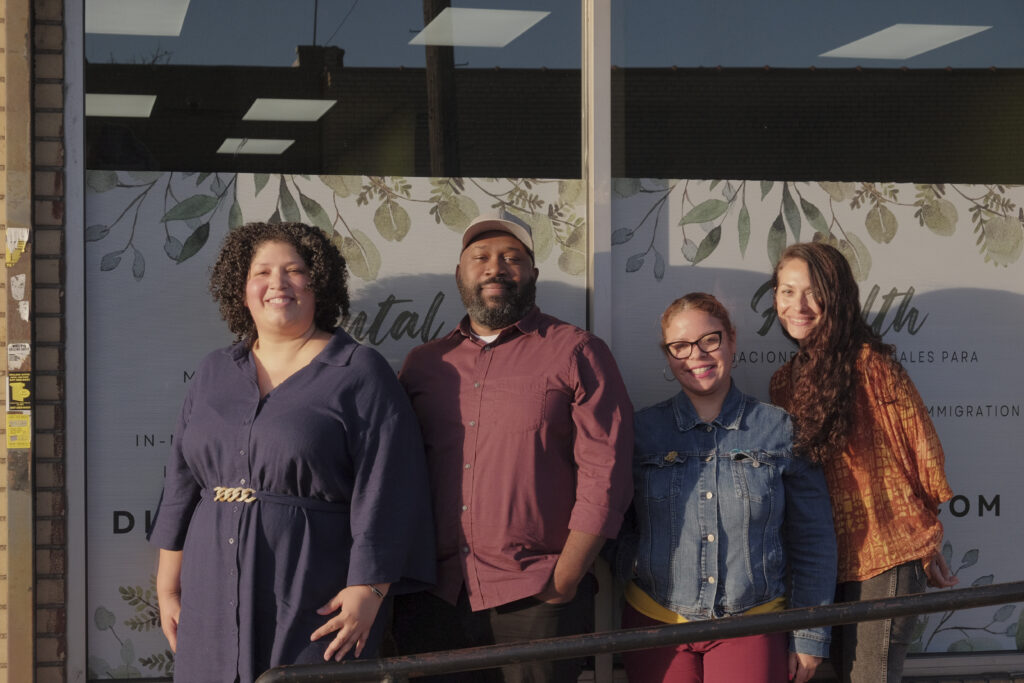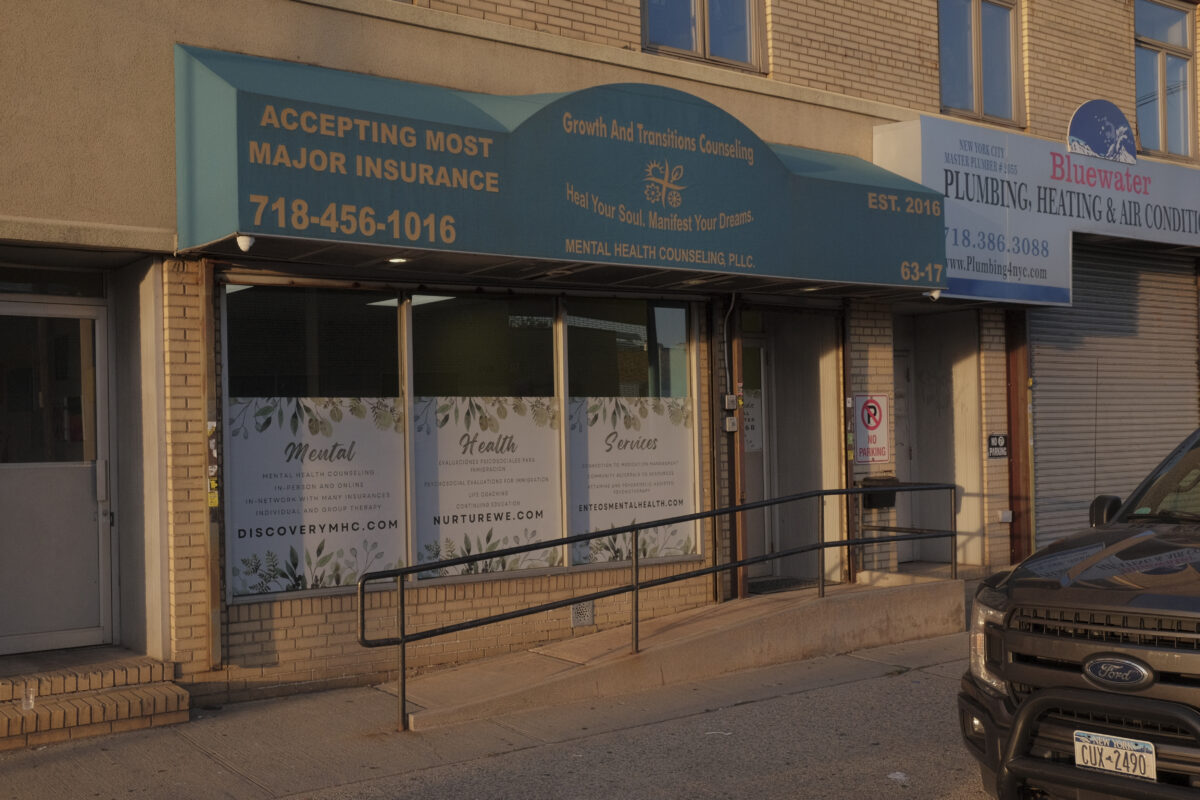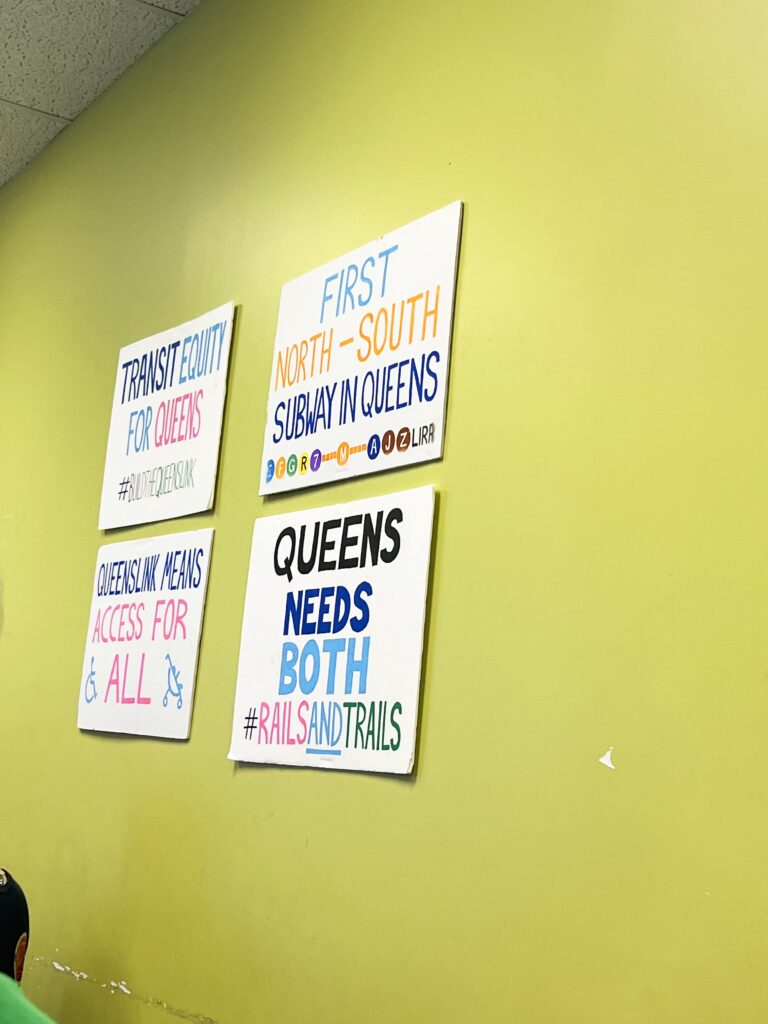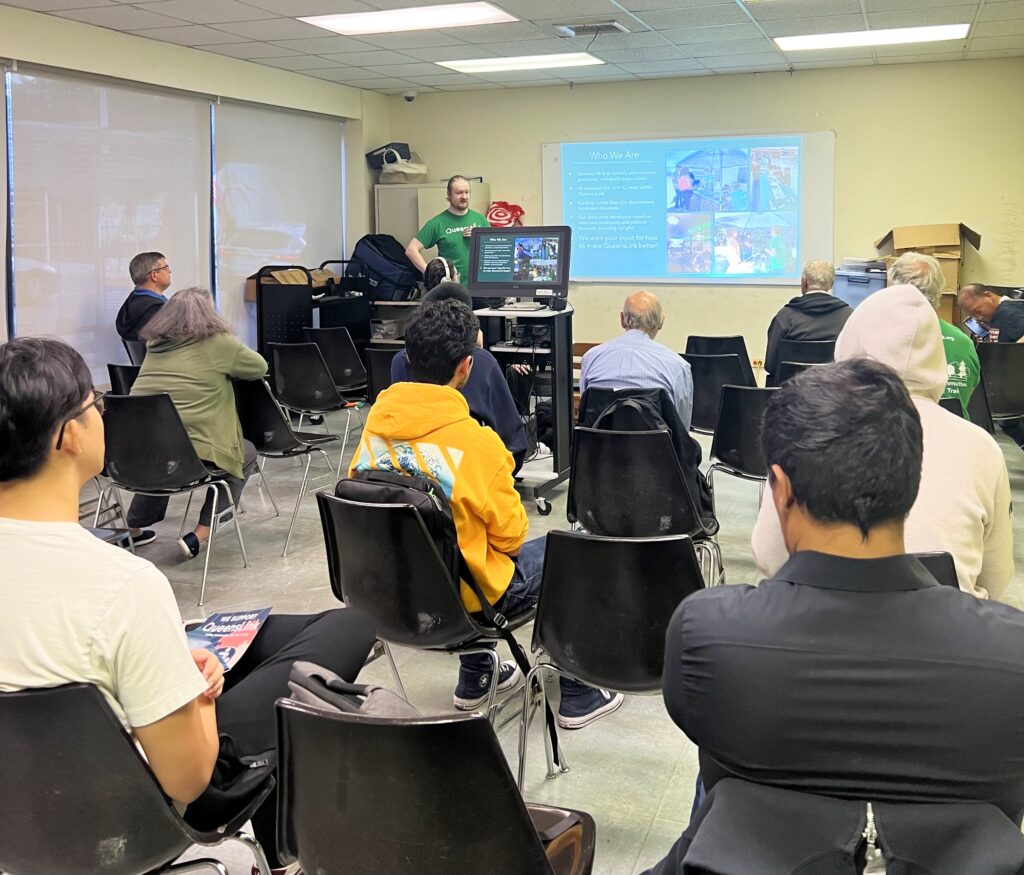Discovery Mental Health Offers Resources for People in the Immigration Process
By Charlie Finnerty
cfinnerty@queensledger.com
Denise Valentin started Discovery Mental Health in Bushwick in 2018 after seeing a need for women and families seeking mental health and social evaluations as part of the immigration process at an affordable price. These evaluations are used as part of an immigration application to demonstrate an applicant would suffer damages or harm above and beyond the average person if they were unable to stay in the country and verify their stories. After going remote in the height of the pandemic, Valentin and Discovery Mental Health reopened in a new location on the edge of Ridgewood and Middle Village this past May.
“They’ve gone through so much to get here. Their dream is to come here, to have their family here. To be a good contribution to this country,” Valentin said.
Valentin said her goal is to provide a more long-term approach to mental healthcare for these patients going through the immigration process in contrast to an industry that conventionally prioritizes processing cases as quickly as possible.
“They would have this big story that they would share and then it would be like, ‘Alright, thanks, go home,’ and there wouldn’t be any followup,” Valentin said. “You just opened up your heart, what happens next? Do you need connections to services? Do you need food for your family? Let’s connect you to another place.”
On the wall behind Valentin as she speaks is a piece of artwork that reads “There will always be a reason why you meet people. Either you need them to change your life, or you’re the one that will change theirs.” The sign hung in the original office and Valentin says it has been a point of inspiration since the early days of the practice.
“That’s the philosophy that I have and that we have,” Valentin said. “It’s inextricably connected. The work that I do with my patient, they change me. They do things for me. I learn about the universe, I learn about myself, I learn about where I’m lacking and I’m hopeful that in that exchange, that they are also learning. So my clinicians, they hold that and they work with that.”
Valentin said the strength of the center comes from the diversity of its staff being able to offer a clinician who each patient can feel comfortable with.
“We have a priest who is also a licensed therapist and he works with families, we have a lot of women and people of color, we have people that are from the LGBTQ community. We are so open and wanting to serve and we welcome everybody in. For me, that’s what makes it special, that’s what makes it beautiful.,” Valentin said. “You may want to connect with someone who looks like you, who sounds like, who is even maybe from your age.”

Members of Discovery Mental Health Staff. Denise Valentine, Kevin Salloon, Eunice Santiago and Maggie Rodriguez
Discovery’s role as a bilingual counseling center plays a key role in the immigration process as clients are able to convey their story in their own words without the obstacles of trying to translate to an English-speaking lawyer.
“I have so many people that come here and tell me their story and we submit it and the lawyer goes, ‘I’m sorry, what happened to this person? They did not tell me that.’ And I say yeah they couldn’t express that to you or maybe they didn’t feel comfortable,” Valentin said. “The language opens up people’s hearts, being able to connect.”
Cultural barriers can also add additional burdens for clients trying to seek help, according to Valentin, where mental health is often stigmatized particularly in older generations in the Latino community. Most client referrals at Discovery come from immigration lawyers and recommendations from previous clients.
“What I love about the practice is that a lot of the people that we see refer each other, they help each other,” Valentin said. “They send each other and I love that about the practice. That they feel like they were not just another number, but they were seen as a full human being.”
Given the nature of working with clients navigating the difficulties and often unpredictable nature of immigrating, Valentin said the extra care and sustained attention her clinicians give to clients can be crucial.
“My clinicians will call patients, ‘Where are you? What’s going on?’ Or they’ll call me to say they can’t find someone and we’ll say ‘Alright let’s find them, let’s see what’s going on,’” Valentin said.
The current staff at Discovery consists of 17 clinicians and seven interns, in addition to Valentin. Valentin said she keeps clinicians at the center to 35 clients or less in contrast to other facilities that may have up to 100 clients or more for some clinicians. This ensures that the work is manageable for her staff and the quality of care offered remains individualized to each person that walks through the door, Valentin said.
“At 100 people — even if I wanted to care for them the way I would like to — you can’t. So my rule is once you hit 35, you don’t get anybody else, that’s it,” Valentin said. “Having a slow pace allows us to take our time with patients. Even if we got full, I believe in my heart that even if everybody had a full caseload, because it’s not 100 people for each person, that we could still maintain the same vibe in the facility.”
Eunice Santiago is one of the longest-serving clinicians at Discovery. Santiago said after working in clinical settings in hospitals under corporate leadership, Valentin’s emphasis on a small and intimate space makes Discovery a special clinic.
“When we come here to work with her, it’s a pleasure because she really does care for us. She really cares for our family, she really cares for the environment. She does the best to make sure that we’re okay and our mental health is okay and we’re not burnt out so we’re able to provide our services to the community,” Santiago said. “She’s really with the community and that’s what I like about her.”
Maggie Rodriguez handles much of the administrative and marketing side of Discovery. Rodriguez has worked in several clinics in the US and Canada but said that Valentin has created a truly special environment.
“She is what you see, that is who she is with everybody. I think the clients immediately when they encounter her, they feel like, ‘Okay, you know what, things are bad but they’re not that bad. These people are going to hold us,’” Rodriguez said. “She’s like light.”




